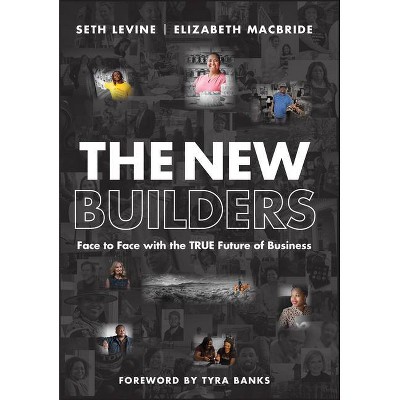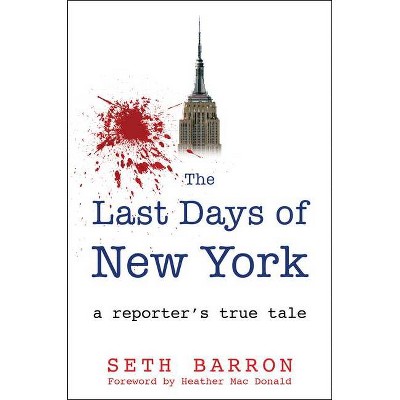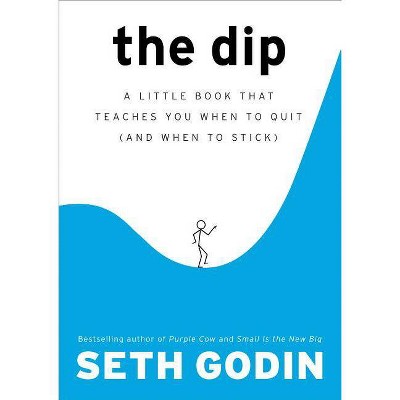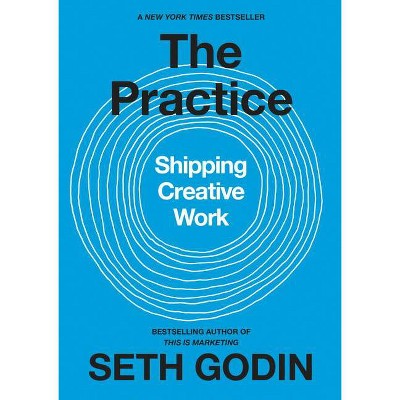The New Builders - by Seth Levine & Elizabeth MacBride (Hardcover)

Similar Products
Products of same category from the store
AllProduct info
<p/><br></br><p><b> Book Synopsis </b></p></br></br><p>Despite popular belief to the contrary, entrepreneurship in the United States is dying. It has been since before the Great Recession of 2008, and the negative trend in American entrepreneurship has been accelerated by the Covid pandemic. New firms are being started at a slower rate, are employing fewer workers, and are being formed disproportionately in just a few major cities in the U.S. At the same time, large chains are opening more locations. Companies such as Amazon with their deliver everything and anything are rapidly displacing Main Street businesses.</p> <p>In <i>The New Builders</i>, we tell the stories of the next generation of entrepreneurs -- and argue for the future of American entrepreneurship. That future lies in surprising places -- and will in particular rely on the success of women, black and brown entrepreneurs. Our country hasn't yet even recognized the identities of the New Builders, let alone developed strategies to support them.</p> <p>Our misunderstanding is driven by a core misperception. Consider a typical American entrepreneur. Think about the entrepreneur who appears on TV, the business leader making headlines during the pandemic. Think of the type of businesses she or he is building, the college or business school they attended, the place they grew up.</p> <p>The image you probably conjured is that of a young, white male starting a technology business. He's likely in Silicon Valley. Possibly New York or Boston. He's self-confident, versed in the ins and outs of business funding and has an extensive (Ivy League?) network of peers and mentors eager to help his business thrive, grow and make millions, if not billions.</p> <p>You'd think entrepreneurship is thriving, and helping the United States maintain its economic power.</p> <p><b>You'd be almost completely wrong.</b></p> <p>The dominant image of an entrepreneur as a young white man starting a tech business on the coasts isn't correct at all. Today's American entrepreneurs, the people who drive critical parts of our economy, are more likely to be female and non-white. In fact, the number of women-owned businesses has increased 31 times between 1972 and 2018 according to the Kauffman Foundation (in 1972, women-owned businesses accounted for just 4.6% of all firms; in 2018 that figure was 40%). The fastest-growing group of female entrepreneurs are women of color, who are responsible for 64% of new women-owned businesses being created.</p> <p>In a few years, we believe women will make up more than half of the entrepreneurs in America.</p> <p>The age of the average American entrepreneur also belies conventional wisdom: It's 42. The average age of the most successful entrepreneurs -- those in the top .01% in terms of their company's growth in the first five years -- is 45.</p> <p>These are the <i>New Builders</i>. Women, people of color, immigrants and people over 40.</p> <p>We're failing them. And by doing so, we are failing ourselves.</p> <p>In this book, you'll learn: </p> <ul> <li>How the definition of business success in America today has grown corporate and around the concepts of growth, size, and consumption.</li> <li>Why and how our collective understanding of entrepreneurship has dangerously narrowed. Once a broad term including people starting businesses of all types, entrepreneurship has come to describe only the brash technology founders on the way to becoming big.</li> <li>Who are the fastest growing groups of entrepreneurs? What are they working on? What drives them?</li> <li>The real engine that drove Silicon Valley's entrepreneurs. The government had a much bigger role than is widely known</li> <li>The extent to which entrepreneurs and small businesses are woven through our history, and the ways we have forgotten women and people of color who owned small businesses in the past.</li> <li>How we're increasingly afraid to fail</li> <li>The role small businesses are playing saving the wilderness, small towns and redlined communities</li> </ul> <p>What we can do to turn the decline in entrepreneurship around, especially be supporting the people who are courageously starting small companies today.</p><p/><br></br><p><b> From the Back Cover </b></p></br></br><p>What if everything you've been told about business is wrong?</p><p>Contrary to the myth of the white, male tech founder that dominates our mindshare, most new businesses are started by people who are Black, brown, female, and older. Many of them are immigrants and people who have been left out of the narrative. We call this next generation of business owners <i>New Builders</i>. Individually, they are strong. Collectively, they are mighty. And they are redefining our economy while creating success on their own terms.</p><p>Everyday people doing extraordinary things.</p><p><i>The New Builders</i> is a call to action for the millions of Americans who are reshaping the business world. To those who see the power of Main Street communities and see a future where people have the economic freedom to pursue their passions. <i>The New Builders</i> is also a wake-up call for Americans to start seeing and valuing a new generation of business owners.</p><p>Meet a Dominican baker who started her company with $37 in food stamps. The Makerspace in Staunton, Virginia, that crafted 1,500 masks for the city's hospitals during the Covid-19 emergency. The small business that quietly creates wilderness advocates in Montana. The <i>New Builders</i> in Oklahoma City, constructing a locally owned retail center, and, after decades of redlining, disproving the myth that "nobody builds on the East Side."</p><p><i>New Builders</i> take their dreams and build businesses around them. Their stories are inspiring but also show how tenuous our entrepreneurial edge as a country really is.</p><p>Meet the <i>New Builders</i>. They are the next generation of great entrepreneurs.</p><p/><br></br><p><b> About the Author </b></p></br></br><p><b>ABOUT THE AUTHORS</b></p><p><b>SETH LEVINE</b><br>A long-time venture capitalist, Seth Levine is a Co-founder and partner of Foundry Group, a Boulder, CO-based venture firm. Easily distracted and a passionate advocate for entrepreneurship, Seth also spends time as an advisor to venture funds and companies around the world. Seth and his wife live in Colorado with their three children.</p><p><b>ELIZABETH MACBRIDE</b><br>An international business journalist, Elizabeth's work has been featured in <i>The Washington Post</i>, <i>BBC</i>, <i>MIT Tech Review</i>, <i>Quartz</i>, and many other prominent publications. She founded <i>Times of Entrepreneurship</i> to share the stories of many often-overlooked entrepreneurs she has encountered in her reporting around the world. A writer, traveler and seventh-generation Washingtonian, she lives in Alexandria, Va., with her two daughters.</p>
Price History
Price Archive shows prices from various stores, lets you see history and find the cheapest. There is no actual sale on the website. For all support, inquiry and suggestion messages communication@pricearchive.us




















